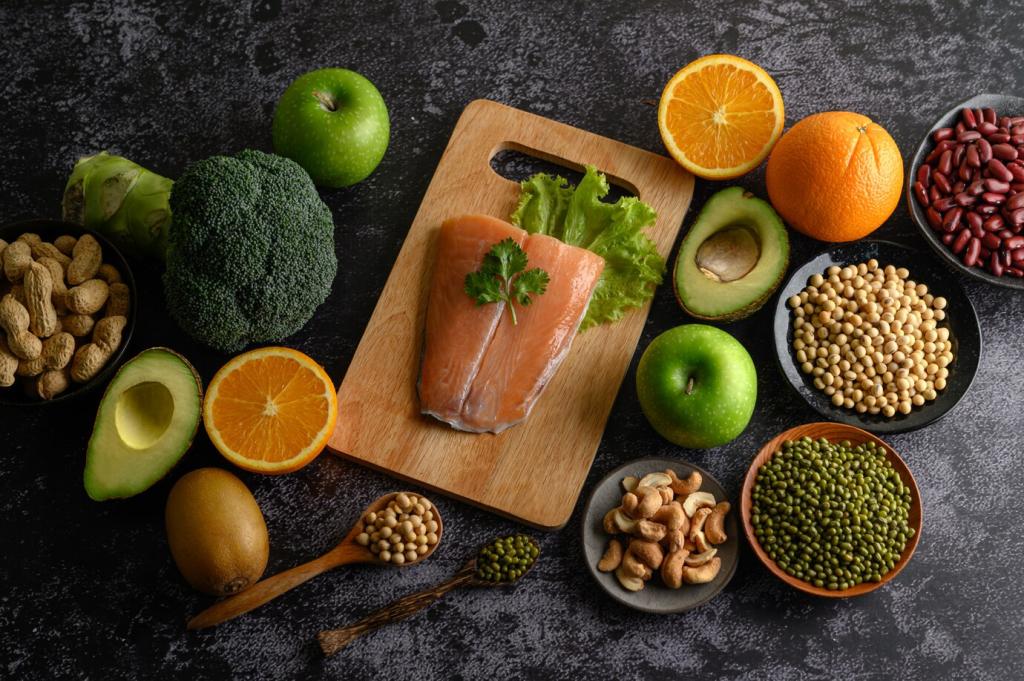Plant-Based Diets for Athletes
Adopting a plant-based diet as an athlete is gaining popularity worldwide, promising not only health benefits but also performance advantages. Whether you are a professional competitor or a dedicated fitness enthusiast, understanding how plant-based nutrition supports athletic demands can dramatically influence your training results. This page explores the essentials and advantages of fueling athletic performance entirely from plant sources, debunking myths and offering evidence-based insights for those aiming to optimize their sports nutrition.

Understanding Plant-Based Nutrition for Athletes
A plant-based diet centers around whole, minimally processed plant foods, prioritizing fruits, vegetables, whole grains, legumes, nuts, and seeds. For athletes, this approach emphasizes a broad spectrum of naturally occurring vitamins, minerals, and antioxidants. While the intake of animal products is reduced or avoided, attention is paid to food variety and nutrient density to maintain optimal health and performance. A well-designed plant-based diet can meet all the essential nutritional needs of athletes, provided there is a focus on sufficient calories, protein, iron, calcium, and vitamin B12.

Benefits of a Plant-Based Diet for Athletic Performance
Enhanced Recovery and Reduced Inflammation
Plant-based foods are naturally rich in antioxidants and anti-inflammatory compounds like polyphenols and flavonoids. Regular consumption helps counteract exercise-induced oxidative stress and inflammation, leading to shorter recovery times and reduced muscle soreness. Whole foods such as berries, leafy greens, turmeric, and ginger provide athletes with powerful nutrients that accelerate healing and tissue repair between workouts, supporting consistent and intense training regimens without the lingering effects of inflammation.
Endurance and Stamina Improvements
Complex carbohydrates from plant foods offer steady, sustained energy for endurance activities. Unlike simple sugars that cause spikes and crashes, foods like whole grains, beans, and starchy vegetables break down gradually, providing a prolonged energy release ideal for long-distance running, cycling, or multi-hour training sessions. The fiber and micronutrient content in plant foods also supports improved blood flow and oxygen delivery, contributing to heightened stamina and athletic performance over time.
Cardiovascular and Immune Support
Athletes require robust cardiovascular systems to deliver oxygen and nutrients efficiently, as well as strong immune defenses to prevent illness. Research shows that plant-based diets are associated with lower cholesterol levels, improved blood pressure, and a reduced risk of heart disease. The abundance of vitamins, minerals, and phytonutrients found in plant foods supports optimal immune function—a crucial factor for athletes exposed to physical and environmental stressors through intense training and competitions.
Protein for Muscle Maintenance and Growth
Securing adequate protein intake is a top priority for athletes seeking to build or preserve muscle. While animal products are traditionally seen as prime protein sources, a variety of plant foods—such as lentils, chickpeas, peas, tofu, tempeh, and whole grains—offer high-quality proteins. Combining different sources throughout the day ensures a complete amino acid profile. Athletes may also incorporate plant-based protein powders, such as those made from pea or rice, to conveniently boost daily intake, maintain muscle mass, and aid post-workout recovery.
Iron, Calcium, and Vitamin B12 Considerations
Some nutrients are less prevalent or less efficiently absorbed from plant foods, notably iron, calcium, and vitamin B12. Iron from plants is non-heme and requires partners like vitamin C to enhance absorption. Leafy greens, nuts, seeds, and fortified plant milks can provide essential calcium, while vitamin B12 is best sourced from supplements or fortified products since it is not naturally found in plant foods. Strategic meal planning, routine monitoring, and intelligent supplementation help athletes avoid deficiencies that could impact performance or overall health.
Omega-3 Fatty Acids for Inflammation and Brain Health
Omega-3 fatty acids play a crucial role in reducing inflammation and supporting cognitive function—both vital for athletes. While many believe omega-3s can only be obtained from fish, plants such as flaxseeds, chia seeds, walnuts, and algae-based supplements provide viable sources, particularly alpha-linolenic acid (ALA). For those requiring higher doses, especially of EPA and DHA, algae-derived supplements are an effective, direct alternative to marine-based sources. Incorporating these foods regularly into a plant-based diet helps ensure athletes benefit from optimal inflammation control and mental performance.

